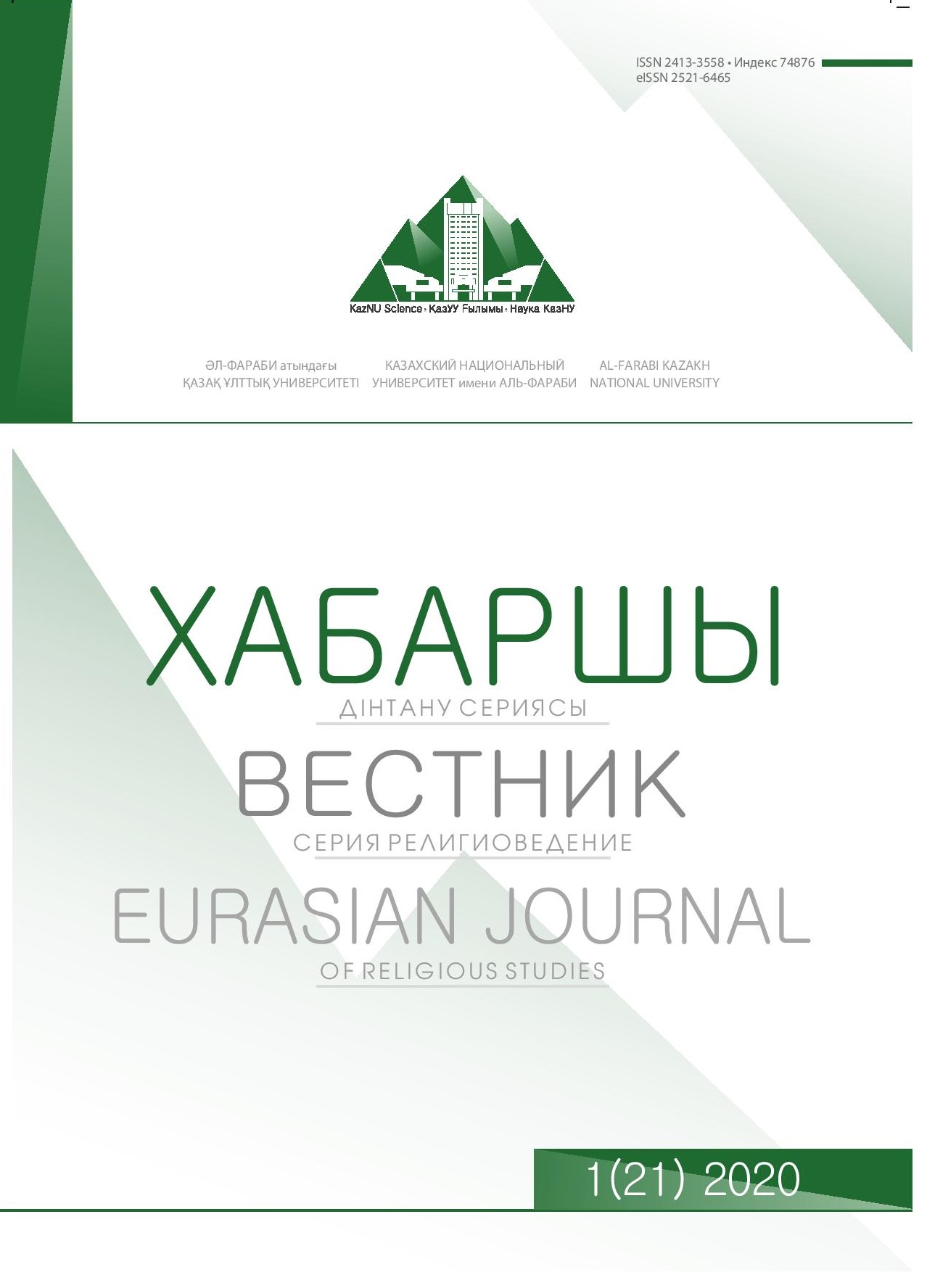The development of islamic studies (quranic studies) in Uzbekistan: history and modernity
DOI:
https://doi.org/10.26577/EJRS.2020.v21.i1.r6Abstract
For nearly 14 centuries, many books and studies have been published for the concept and commentary on verses. Without a doubt, the basic concepts found in the text of the Koran are considered the fundamental concepts of the religion of Islam itself. The Qur'an is considered a holy book and the main source of Islam, and a correct understanding of this sacred text means also a correct understanding of the very essence of this religion. From time immemorial, mufassirs (interpreters of the Qur'an) tried to correctly comment on the Qur'an. In this case, the Mouverannahr mufassirs did not lag behind their peers in other parts of the Islamic world. Islamic scholars, thelagists determined a list of sciences that the mufassir must have known. It was the comments of such mufassirs who were well versed in this knowledge that were considered acceptable by scientists. This article discusses the emergence and prosperity of tafsir science in medieval Maverannahr, as well as analyzes the role and scientific heritage of mufassir scholars of that time. In fact, clarification of the meanings of the verses of the Qur'an has been an urgent problem since the rise of the Islamic religion. That is why, the prophet Muhammad himself interpreted the verses, and later, well-versed in this science, his associates, tabiins and mufassirs of recent periods engaged in the interpretation of verses.




